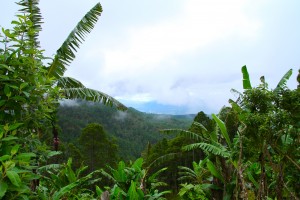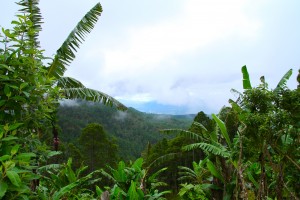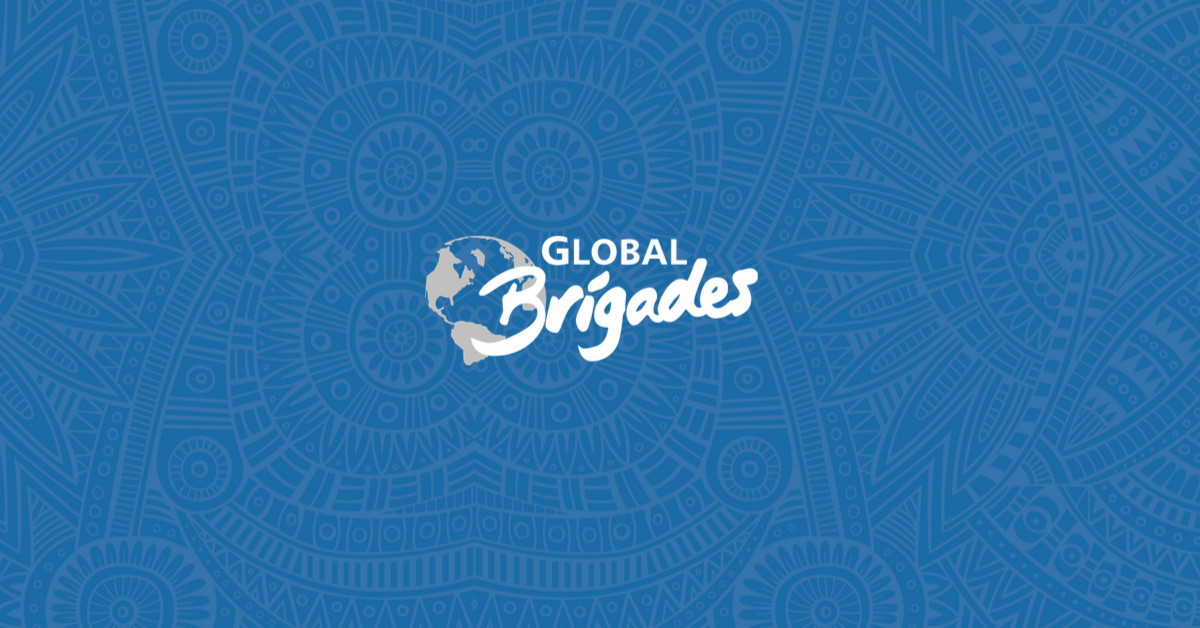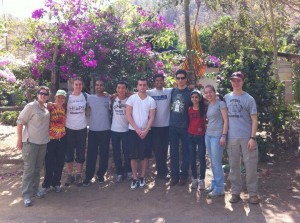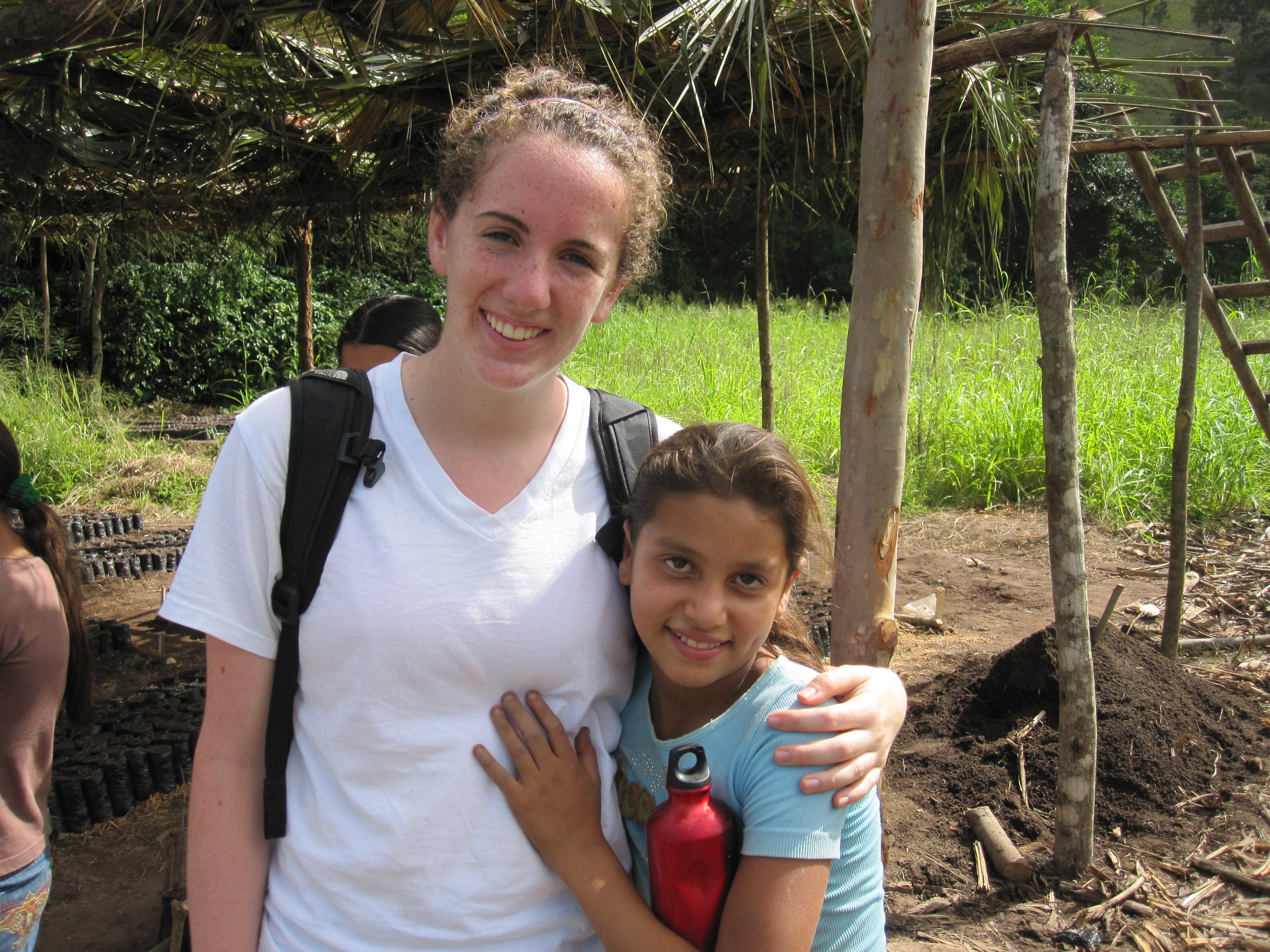Read this amazing blog post by Hannah Spiegel from the University of George Washington. Hannah recently participated in an Environment brigade to Panama and wrote about her experiences and how this was one of the most meaningful (and funnest!) ways to kick off the New Year!
By: Hannah Spiegel/ University of George Washington
People always say that the way you spend New Year’s is the way you are going to spend the rest of the year. Being somewhat superstitious, I have always believed that the way I ring in the New Year has to be happy and I have to be surrounded by people. This year, I spent it asleep and alone in my dorm room in anticipation of waking up 3 hours later to go to the airport. Needless to say, 2011 from an outsider’s perspective was not exactly going to be my most social and exciting year.
If you could add an addendum to that scenario and mention that the reason I was spending my New Year’s Eve in a rather quiet and antisocial manner while listening to people raging in the streets nearby, was because I was leaving the GW campus at 4 A.M. to go spend a week in Panama. Nice life, right? This was not, however, the stereotypical GW vacation to a foreign country. A group of 14 of us were going to spend a week living in the school of a community a couple hours outside of Panama City building eco-stoves and water filters. We would also be able to do workshops where we would educate the community on Global Warming and the importance of the projects we were completing in their homes.
2 flights and about 10-11 hours later, we stepped off the plane in Panama City, and we could feel the sun’s warmth as we walked down the jet bridge. The group was cheering and everyone had practically forgotten about how awful we had felt when boarding the bus to Reagan Airport that morning. Nothing seemed to matter anymore, we had landed in Panama.
The first two days we spent in Panama we had the fortune of walking around the city and taking a jungle tour along the Panama Canal. We got to feed monkeys, lemurs and a toucan. We got to hold a snake and pose for pictures of it. We got to swim in the Panama Canal just minutes before a crocodile swam by. And, when we did not think things could get any better, we got to go kayaking by a beautiful waterfall. There was no denying it was one of the best days ever, and a great start to the trip.
But, we could not forget why it was we had come to Panama in the first place. We ended those first days in Panama both anxious and excited to start work in the community the following day. No one really knew what to expect or how it would be perceived when 23 gringos arrived in their community, took over the local primary school and spent days building at their houses. We did not know if these people even liked Americans, and, although our Global Brigades guide Tania tried to reassure us otherwise, we did not even know if they would be happy to see us.
Upon entering the bumpy road to the community, it became clear we were outsiders. People gathered along the road, staring blankly as our van drove up to the school, which was located in the middle of the community. As we unloaded the van, however, it was amazing to see the community members rush to the van and help carry our bags into the school. These people knew little to nothing about us, but it became clear they wanted to be welcoming and friendly.
After settling in the classroom we would be living in, we had the opportunity to meet some of the community members whose houses we would be building the stoves and water filters in during the next couple days. The people we met continued to stress how excited they were to have us, but I don’t think it immediately clicked for us how important what we were doing was.
Here’s an important thing to know about Panamanians when trying to understand my experience building with them: they definitely take their sweet time. Life is simpler and time moves infinitely slower than the pace we are used to in DC. My partner Chris and I learned this the hard way when we attempted to build a water filter on the first construction day. The Panamanian men we were working with would hammer a nail into one of the pieces of wood for the base, eat an orange, talk to each other and then maybe think about going back to work. They did not seem to care that we had started two hours late and that the project was supposed to be completed that day. They carried on with their conversation, and I, the weakest member of the group, would attempt to hammer nails and pound the wood to lessen my frustration with their work ethic.
In retrospect, I think almost anyone working in DC could learn something from this type of work ethic. Yes, the Panamanians in El Entradero would probably learn something from us and then, maybe, they could finish the construction of houses and other unfinished projects. But, we could definitely learn something to, and I think we would be less likely to admit that this.
If there is anything I learned while in Panama, it’s that Americans put way too much emphasis on money. Money defines not only social standing, but it also seems to define intelligence in American society. Some of the families in El Entradero made only $10, which many students at GW spend on lunch, but they were still respected members of the community and much smarter than their salary in American dollars would suggest. They had real-life experience that had added to their education, so, even if they did not go to school after the sixth grade, they had impeccable awareness and practical skills many Americans did not have.
I could have probably gone home satisfied on the third day in El Entradero having had that epiphany. It was the sort of humbling realization people talk about getting while going to developing countries. Yet, it was in our final two days that I truly realized the impact we had on the community and how the norm of reciprocity paid its course.
On the days of the workshops, we had the chance to educate the community that had educated us so much in the past few days. We were not only unsure that they would listen to what we had to say, but we were also unsure that the community members would even show up. We had all pooled together money to provide lunch as an incentive, but I’m pretty sure that had nothing to do with why people came in masses (a couple hours late) to hear us speak.
It was made clear during their feedback time that we had drastically changed the lives of the community members. All of the families we had worked with and all of the children we had played with sat at the desks in the classrooms and continued to tell us that we had funded projects that would change their lives in so many ways. It was touching to see how happy we had made the people that had been so inspiring to us.
After a sweet goodbye party on Friday in which the community sang and danced to traditional Panamanian music for us, we had to say goodbye to the place we had quickly learned to call home. A place in which ice pops were ten cents and looking for someone meant you had to physically wander around the community and not shoot the person a text. A place in which all of the neighbors, kids and grandparents would rush to help a stranger push their truck out of a hole. But, mostly, a place that had provided a group of privileged students with a necessary humbling experience.
Biology and psychology both say that the formation of memories involve information being stored in your brain such that it does, in fact, alter the brain. I interpret this to mean that, in a less scientific and more metaphoric sense, memories will change the actual person you are and that, one the memories are stored in your brain you can no longer be the same person. You have been changed forever.
I was thinking about this on the plane flight home from Panama. I looked at my exhausted, dirty, bug-bite covered and slightly sunburnt self and thought about the week I had just had. I thought back to my friend Hunter’s insistence that I apply to go on the Alternative Break program in the first place and how he had promised me, even though he didn’t exactly know, that it would be life-changing. Looking across the plane at Hunter then, I made a mental note to thank him for making me a better person and making my life so much richer as a result of the experience. I realized then that, not only would the memories I now had from this trip change who I am, but that, furthermore, these memories would change me into the person I want to be.
Lastly, I had to sit and laugh to myself thinking about New Year’s. I now realized that it was completely worth it to spend New Year’s Eve sleeping in anticipation of the best week ever, because, here I am, on January 12, already thinking about how much I have grown this year and how great this year has already been to me.

